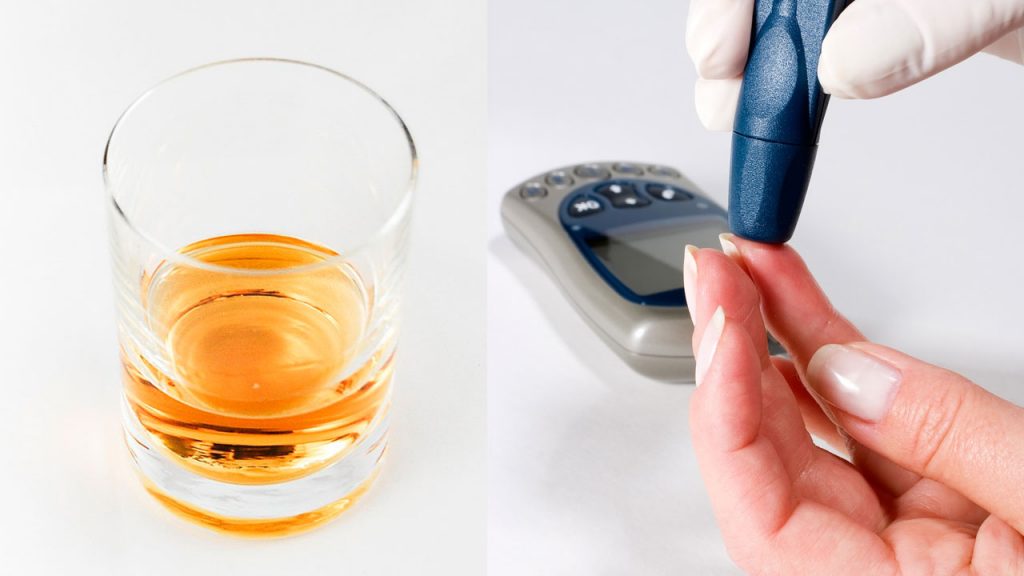In a new study by Ben-Gurion University on wine and type 2 diabetes suggests that those with the disease might experience benefits if they switch from abstention to moderate drinking, with evidence to back up the claim. The study published in the European Journal of Clinical Nutrition.
The study with 224 participants having Type-2-diabetes was involved who previously abstained from alcohol. Scientists introduced them to drink a glass of either red wine, white wine, or water each day, and follow a Mediterranean diet.The study suggests that initiating moderate alcohol consumption among well-controlled persons with type 2 diabetes is apparently safe.
The two sub conclusions were made in the same study, first; sub-study uncovers that wine was shown to slow the progression of atherosclerosis in diabetics. And the second sub-study focused on heart rate variability (HRV), or the variety in the time interval between heartbeats.
New research suggests that drinking beer is good for your health. The study suggests that doctors should be aware of the growing evidence supporting the nutritional and health benefits of moderate consumption of alcohol as a part of a healthy lifestyle (1).
- Beer contains a huge amount of proteins and Vitamin B. It is high in antioxidants, thus, reduce the risk of heart attacks. The antioxidant content of beer is equivalent to that of wine.
- The polyphenols in the beer are the natural compounds obtained from plants. When consumed, they also help in reducing the risk of developing atherosclerosis, type 2 diabetes, and heart disease due to their anti-inflammatory effects.
- In terms of diabetes, xanthohumol, a key ingredient used to make beer, has been found in multiple studies to reduce the likelihood of insulin resistance in mice who were fed high-fat diets.
But there is also a limitation, as the study notes this only applies to “moderate drinking” – which means one drink per day for women and two maximum for men. Exceeding this could result in liver damage, heart disease, and weight gain.
Diabetes and alcohol
Until now, many studies have shown the health benefits of moderate alcohol consumption. Moreover, there are certain facts that should be considered while drinking alcohol.
While moderate amounts of alcohol may cause blood sugar to rise, excess alcohol can actually decrease your blood sugar level – sometimes causing it to drop into dangerous levels, especially for people with type 1 diabetes.
Moderate amounts of alcohol may cause blood sugar to rise. The alcohol (Beer and wine) contains carbohydrates. The excess alcohol consumption can bring your sugar levels down.
It may happen that alcohol consumption may stimulate your appetite, which can cause you to overeat. Alcohol contains a lot of calories. Surely, these calories are in excess, which further puts on weight and trouble for you. The calorie content of alcohol types is mentioned in the below chart;
| NAME | Quantity (ml) | Calories (k cal) |
| Beer | 150 | 66 |
| Whisky | 60 | 146 |
| Rum | 60 | 146 |
| Gin | 60 | 146 |
| Wine | 60 | 96 |
| Vodka | 60 | 220 |
Alcohol and Mental Health – Alcohol consumption may affect your willpower, confidence, thought process, and other behavioral actions. It may bring down to stress also. Stress is the biggest enemy for a diabetic person.
Also, regular (excess) intake may hamper your triglyceride levels, may lead to poor food habits, heart rate enhances, blood pressure surge, and may deprive of sleep.
Although both, American Diabetes Association and the American Heart Association discuss moderate alcohol consumption in their guidelines, a conclusive recommendation is not given, [nor is] a recommendation to initiate moderate intake.
Your healthcare provider will tell you how much alcohol is safe for you to drink, depending on your condition. It is a possibility that he may ask you to stop completely.
